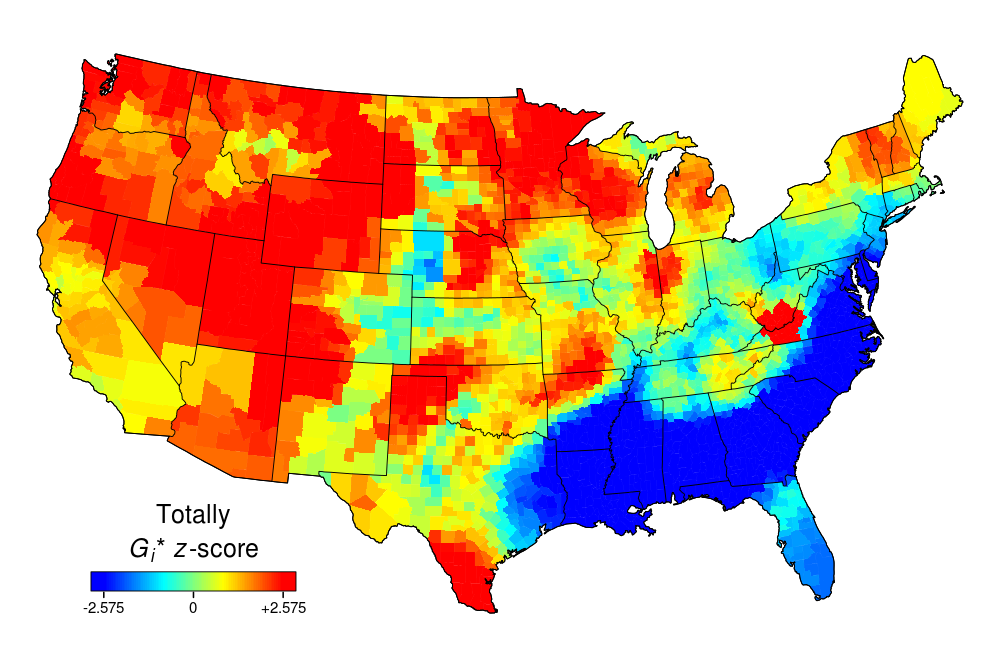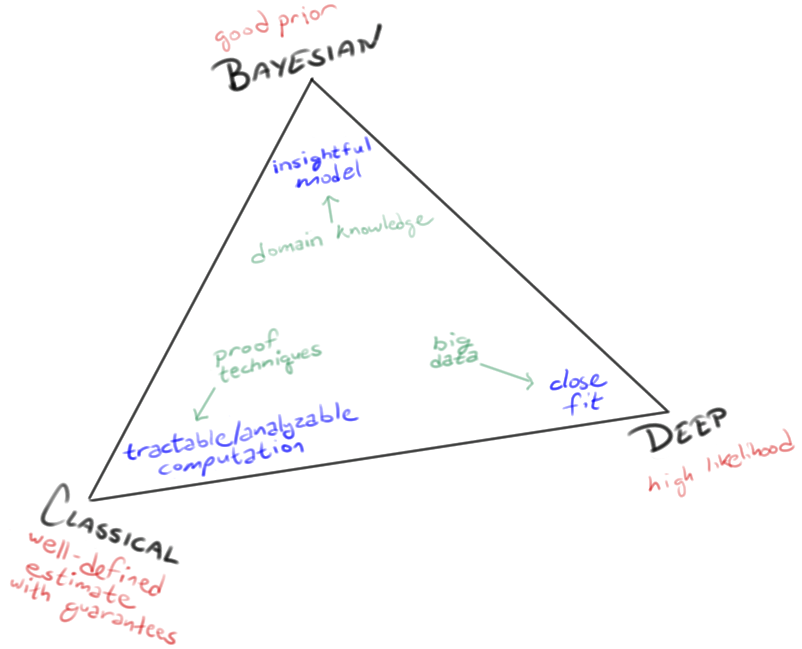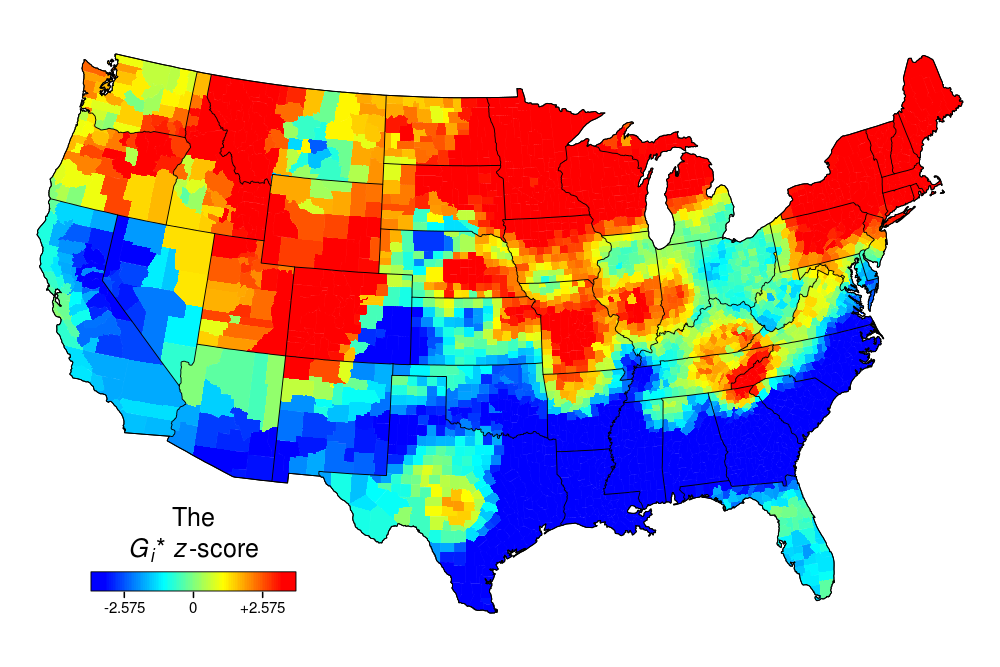Solaar pleure carrément?
In my limited experience of French hiphop, I've gotten the impression that it's rhythmically rather "square", in the sense that the syncopations or polyrhythms that are common in the corresponding American genres are relatively rare. As a first tentative step in evaluating this (perhaps quite wrong) idea, I analyzed the word-to-beat alignments of MC Solaar's popular 2001 piece Solaar Pleure. Here's the official video on YouTube:
And there's a set of annotated lyrics at genius.com.
Read the rest of this entry »
Totally Word Mapper
Jack Grieve Twitter-based Word Mapper (see "Geolexicography", 1/27/2016) is now available as a web app — like totally:
Read the rest of this entry »
Strong language
I have no context for this photo, but the character on the car and sign behind make the situation pretty obvious. Courtesy of Josh Ellis on Facebook, via Michael Cannings on Twitter:
Read the rest of this entry »
N Cultures
From Jason Eisner, a diagram of "The Three Cultures of Machine Learning":
Read the rest of this entry »
"Butterfly" words as a source of etymological confusion
Nick Kaldis writes:
I've started buying English etymology books for my 8-year-old daughter and I to explore; today we discovered that "butterfly" comes from "butter" + "shit", because their feces resemble butter.
Read the rest of this entry »
Waste bin misnegation
I saw a sticker on the lid of a pedal-operated hospital waste bin that said this:
| THIS SACK HOLDER IS SPECIFICALLY DESIGNED TO BE FOOT OPERATED ONLY. THE LID MUST NOT BE HAND OPERATED AND PUSHED PAST THE POINT WHERE IT WILL NOT AUTOMATICALLY RETURN TO THE CLOSED POSITION. |
Everyone who uses the bin sees this notice; maybe some even read it and try to respect it; but perhaps only Language Log readers will notice that it contains a misnegation — another sign that the number of negations within a sentence that our poor monkey brains can successfully handle averages out at little more than 1.
Read the rest of this entry »
Permalink Comments off
Aspects of the Theory of Disney Princesses
At the recent LSA annual meeting in Washington DC, Carmen Fought and Karen Eisenhauer presented a paper with the title "A quantitative analysis of gendered compliments in Disney Princess films". The abstract:
Recent studies find that children use animated films in constructing their gender identities (e.g. DoRozario, 2004; Baker-Sperry, 2007). However, little is known about how gendered language is presented in children’s media. Data on compliments in the Disney Princess films were analyzed for gender of speaker and recipient, and for type of compliment given/received (Holmes, 1986). The proportion of compliments received by female characters declined in the more recent films, although females overall received significantly more compliments on their appearance. These results illuminate how ideologies about language and gender are packaged and presented to children.
Read the rest of this entry »
Geolexicography
From Jack Grieve, a map of the distribution of the word the on Twitter:
There's lots more geolexicography of common function words on Jack's Twitter feed.
Read the rest of this entry »
The neural basis of Chinese morphological processing
In "Chinese characters and the left-brain vs. right-brain hypothesis " (1/7/16), we read about experimental results debunking " a myth that Chinese languages were predominantly processed by the right hemisphere, compared with alphabetic languages processed by the left hemisphere…."
Now, a team of scientists from Zaozhuang University, Beijing Normal University, and the University of Illinois have published the results of an experiment that offers additional evidence in favor of these findings:
Lijuan Zou, Jerome L. Packard, Zhichao Xia, Youyi Liu, and Hua Shu, "Neural Correlates of Morphological Processing: Evidence from Chinese", Front. Hum. Neurosci., 19 January 2016.
Read the rest of this entry »
Love transformed
With the title "Yeah… that totally translates to 'love'", imgur presents the following image:
Read the rest of this entry »
A new expression in Cantonese
Next Media's Apple Daily (1/23/16) had an article with this headline:
Gǎngdàshēng guà xīn xiàomíng kàng chìhuà
"Hong Kong University students hang [a banner with] the 'new school name' to resist redification"
Read the rest of this entry »
Inching toward digraphia, with a note on the universality myth
The subject of digraphia in China often comes up in our discussions about the Chinese writing system on Language Log (always be sure to check the comments on the posts, because much good material is often added in them), e.g.:
"Digraphia and intentional miswriting " (3/12/15)
"Substituting Pinyin for unknown Chinese characters " (12/3/13)
"Creeping Romanization in Chinese " (8/30/12)
"Character amnesia and the emergence of digraphia " (9/25/13)
"Dumpling ingredients and character amnesia " (10/18/14)
"Which is worse? " (1/21/16)
Read the rest of this entry »




